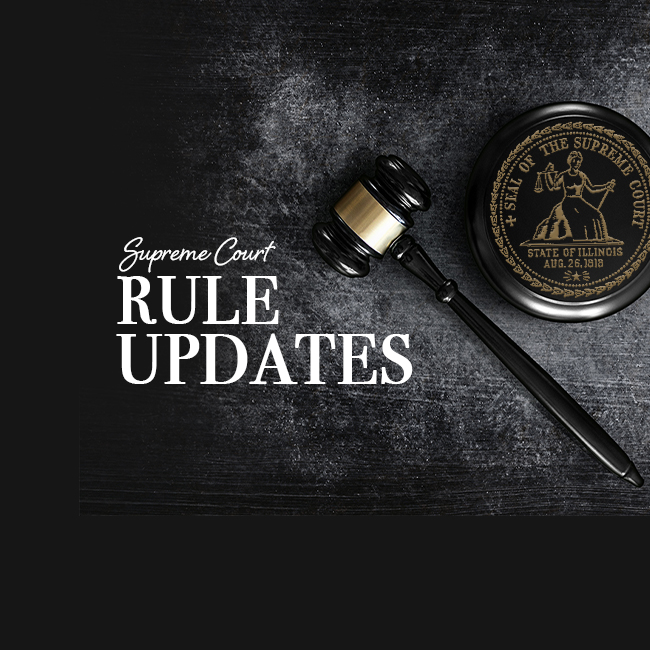Illinois Supreme Court Amends Rule to Address E-Filing Barriers During Pandemic

Chief Justice Anne M. Burke and the Illinois Supreme Court announced today the amendment of Rule 9(c)(5), which will allow self-represented litigants (SRLs) who are unable to complete the e-filing process on their own and unable to get e-filing assistance from the court to file by mail, in person, or other means . The amended rule is effective immediately.
"The Illinois Courts continue to adapt to issues brought on by this pandemic," Chief Justice Burke said. "This change provides self-represented litigants greater flexibility and efficiency when physical access to courthouses is limited by COVID-19."
The Illinois Supreme Court Rules can be found here.
Due to the pandemic, many courts have restricted public access to their buildings, reduced on-site staffing levels, and encouraged staff to practice social distancing. Similarly, there may be limitations on the use of shared facilities and equipment, including public computer terminals to reduce surface transmissions of the virus. As a result, it is no longer feasible for many courts to offer the same level of personal assistance and support while following the precautionary measures outlined by the Supreme Court in its Guidelines for Resuming Illinois Judicial Branch Operations During the COVID-19 Pandemic.
These amendments ensure that the courts remain accessible and are intended to reduce the number of SRLs coming to the courthouse for in-person assistance and decrease the burden on court personnel in providing e-filing assistance.
The amendments to Rule 9(c)(5) were proposed by the Illinois Supreme Court Commission on Access to Justice (ATJ Commission). The ATJ Commission is charged with promoting, facilitating, and enhancing equal access to justice with an emphasis on access to the Illinois civil courts and administrative agencies for all people, particularly the poor and vulnerable.

